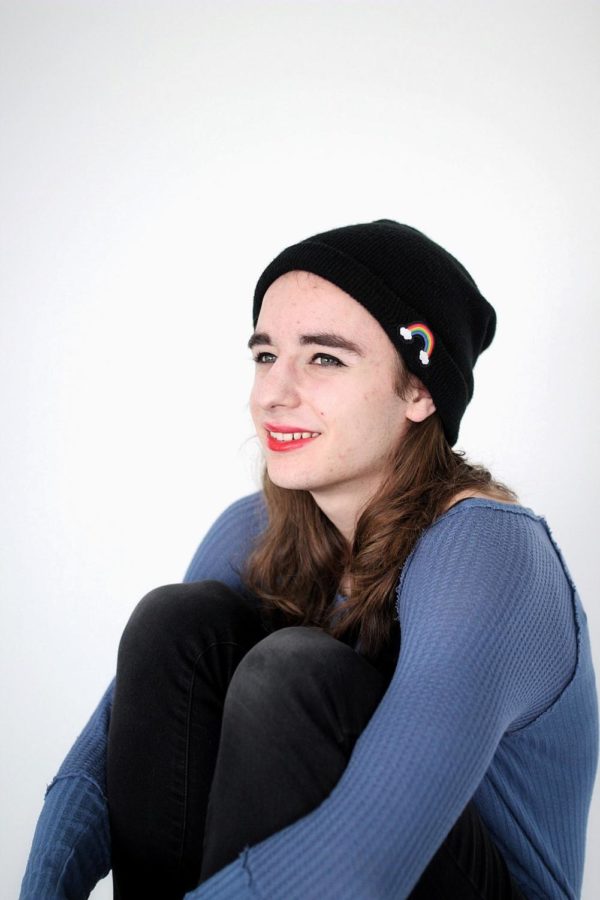Miah Masvero
March 12, 2018
Junior Miah Masvero loves math.
She loves math so much that she uses its logical systems to think her way out of stressful situations. But life isn’t always so binary for Masvero.
“I am an asexual, trans girl lesbian,” Masvero said.
This means that she doesn’t feel any sexual attraction, but still feels romantically attracted to women. It also means she faces judgement and discrimination from people in her life, even the ones closest to her.
“My mom kicked me out after I came out to her,” Masvero said. “My dad’s been decently supportive about it. I’ve had to convince him a little bit but he’s coming around. He was confused, because a lot of my activities aren’t inherently feminine, so when he heard about it, he was like, ‘well what do you mean, you don’t even like makeup or painting your nails’, and it’s like that’s not what being a girl is about, Dad.”
To Masvero, being a girl doesn’t consist of “stereotypical feminine” activities. To her, it’s simply living and being comfortable with herself.
“I tried to imagine myself as a grown man and I wasn’t able to. It was just easier to imagine myself as a grown woman,” Masvero said.
It took many years for her to realize that she was transgender, first becoming exposed to the LGBTQ community in eighth grade. It took her even longer to grapple with that identity, feeling like she didn’t belong.
“I felt like I was cheating, because I’d been extremely homophobic and transphobic in the past, because I was raised in a Christian school and a religious household,” Masvero said. “I felt like I was invading that space, and it took me a good four to five months to realize that this is where I belong.”
Near the beginning of her sophomore year, Masvero decided it was time for a change. She was getting ready for homecoming, but the thought of it made her sick.
“I was looking at my outfit, it was a suit at the time, and I just had this pit in my stomach, because I was like ‘I don’t want to put this on again’,” Masvero said.
She quickly made plans with a friend of hers to head to the Lakes Mall and find a dress that Masvero could wear. Her friend help keep the dress hidden from Masvero’s parents, and on the night of homecoming she brought the dress to the dance to change into later.
“I had a bit of an awkward encounter with Deputy Devries because I brought [the dress] in a bag and he asked me what I had in the bag,” Masvero said. “I told him a change of clothes and he told me to put the bag away.”
She managed to change into the dress at the dance, and that night was the first moment of her public transition.
Masvero is in what she describes as stage three of her transition. It began with realizing she wasn’t comfortable as a male, and then moved to therapy. She’s currently dressing in public as a female and is open and out with everyone in her life. She hopes to soon start hormones to further her transition.
One of the hardest things for her to deal with isn’t direct, hateful discrimination, but small and offhand comments.
“I can deal with harassment,” Masvero said. “I can deal with people calling me an abomination, or whatever. It’s almost funny, in a way. But what really gets to me is when people purposely misgender me. I get a little release in my brain when someone calls me Miah or she. And the opposite happens when someone calls me he. It really hurts.”
Masvero wants to study the mathematics of human error at MIT, using math to view the world and the way people interact. There’s one thing she wishes she could change and understand, but she knows she might not be able to.
“It’d be great to live in a community where there’s a lot of acceptance, because obviously I’m a bit different and that’s hard,” Masvero said. “But there’s only so much you can do.”
